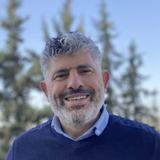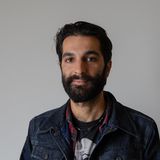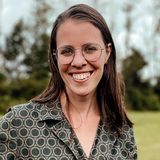The eyes of the world are focused on Gaza. At the same time, both the Israeli army and the Jewish-Zionist settlers continue to seize land in the West Bank and use severe violence. Similarly, the situation of the Palestinian Christian Nassar family of Tent of Nations in Bethlehem is becoming increasingly dire. They bought their land in 1916, have the ownership documents, but have been engaged in an exhausting legal battle with the Israeli authorities since 1991, who claim that their land belongs to the state of Israel. How do they persevere, and what can we do to support them? During this evening, we will engage in a conversation with Daoud Nassar, a Palestinian Christian from Bethlehem, who runs a farm project called the Tent of Nations. Despite the extremely difficult circumstances, he, together with the Nassar family, is committed to non-violent resistance.
Background speakers
Daoud Nassar is a Palestinian farmer and human rights activist. He runs the Tent of Nations project in Bethlehem. Countless times so far, the ToN has been attacked, thousands of trees have been destroyed, and damages of over €150,000 have been caused. The Nassar family has been threatened with their lives several times. Nevertheless, they live without aggression according to the motto “We refuse to be enemies” and hope for a better future. They try to overcome their obstacles, challenges, the continuous destruction and the attacks on their lives in a peaceful nonviolent way based on their Christian values and trusting in God’s justice.
Margriet Westers (moderator), theologian, fosters connections between academia, the Christian tradition, and society. Between 2012 and 2015, she worked at Sabeel, the Centre for Palestinian Liberation Theology in East Jerusalem, where she became acquainted with the Nassar family.








